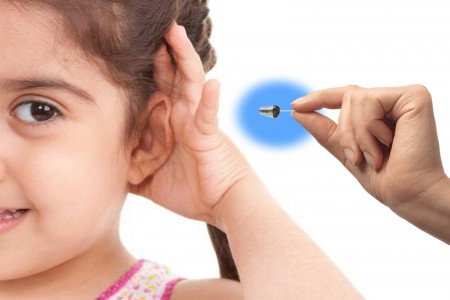
Tips for Protecting Your Hearing Health
Protecting your hearing health is essential for maintaining a good quality of life and preventing long-term hearing loss. Here are some practical tips to help safeguard your hearing:
1. Avoid Prolonged Exposure to Loud Noises
Reduce Noise Exposure: Minimize your exposure to loud environments such as concerts, construction sites, or loud machinery. If you can't avoid these situations, make sure to use hearing protection.
Use Ear Protection: Wear earplugs or earmuffs to protect your ears in noisy settings. Earplugs are especially useful for musicians and concert-goers, while earmuffs are ideal for construction workers or those around heavy machinery.
2. Follow the 60/60 Rule
Limit Volume Levels: When using headphones or earbuds, follow the 60/60 rule: listen at no more than 60% of the maximum volume for no longer than 60 minutes at a time. This helps reduce the risk of noise-induced hearing damage.
Take Listening Breaks: Give your ears a rest by taking regular breaks from listening to music or other audio through headphones.
3. Keep Your Ears Dry
Avoid Water Trapping: Water trapped in your ears from swimming or showering can lead to infections. Dry your ears thoroughly after exposure to water using a towel or a hairdryer on a low, cool setting.
Use Earplugs for Swimming: When swimming, use waterproof earplugs to keep water out of your ears.
4. Practice Safe Ear Cleaning
Avoid Inserting Objects: Do not use cotton swabs, hairpins, or other objects to clean your ear canal. These can push earwax deeper, cause injury, or lead to infections.
Clean the Outer Ear Only: Gently clean the outer ear with a damp cloth. If you have excess earwax or discomfort, consult a healthcare professional for safe removal.
5. Monitor and Manage Your Hearing
Get Regular Hearing Check-ups: Schedule regular hearing evaluations, especially if you’re exposed to loud noise or have a family history of hearing loss. Early detection of hearing issues can prevent further damage.
Be Aware of Hearing Changes: Pay attention to changes in your hearing, such as difficulty understanding speech, muffled sounds, or ringing in the ears. Consult a professional if you notice any changes.
6. Use Hearing Protection Devices
For Occupational Noise: If you work in a noisy environment, use hearing protection devices such as custom-fit earplugs or earmuffs to reduce noise exposure.
For Recreational Noise: Use earplugs when attending loud events like concerts, or while using loud machinery like lawn mowers and power tools.
7. Maintain Overall Ear Health
Manage Allergies and Sinus Issues: Allergies and sinus infections can affect ear health by causing congestion and fluid buildup. Use antihistamines or decongestants as recommended by your doctor to manage these conditions.
Stay Hydrated: Proper hydration helps maintain healthy mucus levels and reduces the risk of infections and blockages.
8. Protect Against Physical Trauma
Wear Protective Gear: Use helmets or earmuffs during activities that pose a risk of head or ear injury, such as sports or cycling.
Avoid Sudden Pressure Changes: When flying or diving, use techniques like yawning, swallowing, or using earplugs to equalize pressure and prevent barotrauma.
9. Adopt Healthy Lifestyle Choices
Avoid Smoking: Smoking can negatively impact your hearing health by affecting blood flow to the inner ear and increasing the risk of ear infections.
Eat a Balanced Diet: Consume a diet rich in antioxidants, vitamins, and minerals to support overall health and ear function. Foods high in omega-3 fatty acids, vitamin C, and zinc are beneficial for hearing health.
10. Educate Yourself and Others
Learn About Hearing Health: Educate yourself about the risks of hearing loss and the importance of protecting your hearing. Share this information with family and friends to help them protect their hearing as well.
Promote Hearing Conservation: Advocate for hearing conservation practices in your workplace or community to raise awareness and support for hearing protection.
By following these tips, you can protect your hearing health and reduce the risk of hearing loss. Regularly monitoring your hearing, using appropriate protection, and maintaining overall ear health are key steps in ensuring your hearing remains optimal throughout your life.